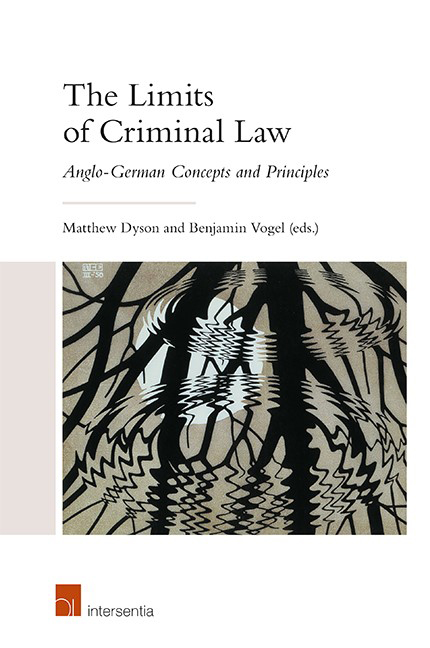Book contents
- Frontmatter
- Preface
- Contents
- List of Cases
- List of Abbreviations
- List of Contributors
- Chapter 1 Introduction
- PART I CORE PRINCIPLES OF CRIMINAL LAW
- PART II CRIME AND TORT
- PART III CRIME AND MEDICAL
- PART IV CRIME AND REGULATION
- PART V ADMINISTRATIVE SANCTIONS
- PART VI ALTERNATIVE ENFORCEMENT
- PART VII COUNTER-TERRORISM
- PART VIII CRIME AND INTELLIGENCE
- PART IX CONCLUSION
- Index
- About the Editors
Chapter 5 - Overlap, Separation and Hybridity Across Crime and Tort
Published online by Cambridge University Press: 11 February 2021
- Frontmatter
- Preface
- Contents
- List of Cases
- List of Abbreviations
- List of Contributors
- Chapter 1 Introduction
- PART I CORE PRINCIPLES OF CRIMINAL LAW
- PART II CRIME AND TORT
- PART III CRIME AND MEDICAL
- PART IV CRIME AND REGULATION
- PART V ADMINISTRATIVE SANCTIONS
- PART VI ALTERNATIVE ENFORCEMENT
- PART VII COUNTER-TERRORISM
- PART VIII CRIME AND INTELLIGENCE
- PART IX CONCLUSION
- Index
- About the Editors
Summary
INTRODUCTION
The relationship between criminal law and tort law can help us understand how the limits of criminal law play out across a legal system. That relationship exemplifies what the limits of criminal law do, and how they try to do it.
First, exploring where the border between crime and tort has been thought to be, and why it developed, suggests that only in specific circumstances is it actually the limits of the criminal law which are determining the contours of liability. That is, lawyers think that it is punishment which requires limitation and punishment is most obviously a criminal law matter. A key question, then, is what matters are criminal, and what are part of another area of law, like tort. Yet English law has had a rough-and-ready approach to that question, found only in rules of procedure. That means that procedure both defines, and is limited by, criminal legal principles. The procedure and the outcome have been more important to the development of English law thus far, more so than substantive law itself. The substance of criminal law has developed only loosely in connection with the limitation of punishment, making that limit of criminal law less effective than might be thought.
Second, there is a complex collection of instances where criminal and civil law overlap and where they have been separated. Where, as is often the case, the same questions are being asked in criminal and civil law, there are many overlapping concepts and doctrines. In some cases, there is direct integration from one to the other. Yet in other cases, mostly questions of procedure, the ultimate possible outcome – the imposition of a penalty – has meant criminal forms have diverged from tort law.
Finally, the limits of the criminal law are sometimes circumvented by creating a hybrid institution, part criminal and part civil. Given that the need to justify punishment has had a stronger effect on rules of procedure, it is not surprising that the most notable hybrids are procedural, attempting to evade the full force of the limit on punishment. This chapter will look at criminal hybrids, like compensation and confiscation in criminal courts, and civil hybrids, like injunctions to prevent breaches of the criminal law and punitive damages.
- Type
- Chapter
- Information
- The Limits of Criminal LawAnglo-German Concepts and Principles, pp. 79 - 106Publisher: IntersentiaPrint publication year: 2020



